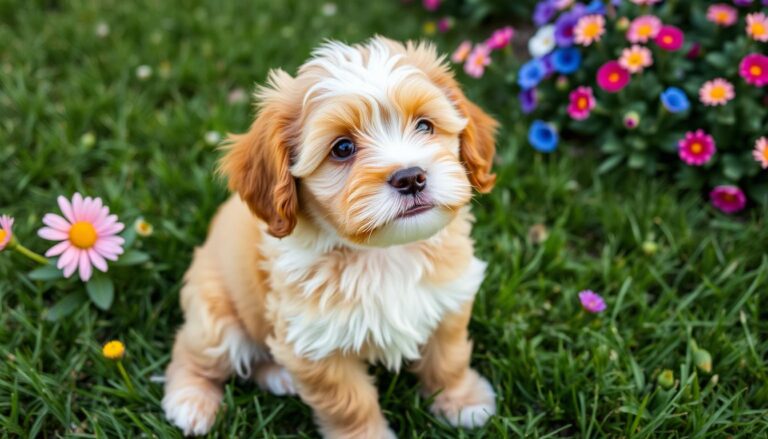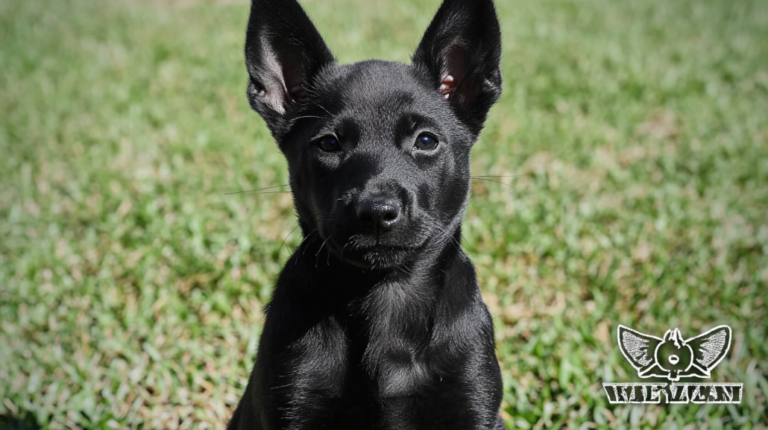Black Mouth Cur Puppies: 9 Positive & Fearless Secrets
Introduction
Picture stepping onto your back porch at dawn, greeted by the bright eyes and wagging tail of a rough-and-ready pup, already primed for the day’s next adventure. That’s a glimpse of life with black mouth cur puppies—spirited canines widely valued for their versatility and loyalty. Tied to the rugged American South, these pups have historically helped farmers and hunters by herding cattle, hunting wild game, and standing guard over property. Even if you’re not a seasoned outdoors enthusiast, their intelligence, high energy, and affectionate demeanors can bring fun and companionship into your home.
Yet the journey of raising black mouth cur puppies also involves key responsibilities. You’ll want to know their training, exercise, grooming, and health needs specific to the breed. In this in-depth guide, we’ll explore every facet of welcoming these strong-willed puppies into your household—helping you decide if black mouth cur puppies are the dynamic furry friends you’ve been looking for, and showing you how to set them up for a healthy, balanced life.
A Glimpse into the History of Black Mouth Cur Puppies
Deep American Roots
black mouth cur puppies stem from a lineage of multipurpose working dogs commonly found in the southern United States, especially around Texas, Florida, Alabama, Mississippi, and Tennessee. The breed’s name references the dark coloration often seen around their muzzle, sometimes extending to other parts of their coat. Historically, these agile, muscular dogs assisted with herding livestock, guarding farmland, and hunting everything from raccoons to wild boar.
Variations Across Regions
There isn’t a single standardized breed registry that recognizes all black mouth curs. Instead, multiple lines have developed with slightly different physical traits and temperaments, shaped by the practical tasks required in particular regions. For instance, the Ladner Black Mouth Cur from Mississippi might differ subtly from the Florida Black Mouth Cur line. Despite these minor variations, the unifying theme is unwavering loyalty and readiness to work for their families.
Rising Popularity
While still considered a rarer sight in suburban neighborhoods than mainstream breeds, black mouth cur puppies are attracting more fans thanks to their rugged charm and no-nonsense approach. They often appeal to people seeking a trainable, protective dog that can keep up on lengthy hikes, enjoy advanced tasks like agility or nose work, and remain fiercely devoted to its human pack.
Physical Characteristics
Size and Build
Fully grown male black mouth curs generally weigh 45–100 pounds and stand around 18–25 inches at the shoulder, while females often tip the scale at 35–85 pounds and measure 16–23 inches tall. Size can vary significantly based on bloodline and region. Regardless of exact height or weight, black mouth cur puppies are typically lean, athletic, and built for endurance.
Coat and Colors
Despite the breed’s name, black mouth cur puppies don’t always have a solid black muzzle—though it’s quite common. Their short to medium-length coats come in a spectrum of shades:
- Yellow / Tan: The most prevalent color, sometimes with white chest or paws
- Brindle: Stripes or swirls of dark hair over a lighter background
- Red: A deeper, richer hue, occasionally with dark points
- Black: Solid black or mostly black, plus the characteristic muzzle
Their coats are relatively low-maintenance, requiring only weekly brushing to remove dead hair. However, note that this breed can still shed, so don’t be surprised if you find short hairs on carpets or furniture.
Facial Features
black mouth cur puppies commonly display broad, sturdy heads with strong jaws. Their ears may be medium-length and set high, typically folding over or partially erect. As the name suggests, many pups feature a dark (often black) coloration around the muzzle or inside the mouth—a distinctive hallmark that’s set them apart in ranching and hunting circles for generations.
Table: Growth Timeline for Black Mouth Cur Puppies (Approximate)
| Age | Weight Range (lbs) | Developmental Milestones |
|---|---|---|
| 8–10 Weeks | 8–15 | Transition to new home, early socialization, basic routine intro |
| 3–4 Months | 15–25 | Teething, short training sessions, crate training |
| 6–7 Months | 30–50 | Adolescent phase, growing confidence, refined obedience |
| 1 Year | 40–70 | Approaching adult size, consistent exercise & mental engagement |
| 18–24 Months | 45–100 (males) / 35–85 (females) | Full maturity, stable temperament, advanced training possible |
Personality and Temperament
Loyal and Protective
Few canines exhibit the unwavering devotion of black mouth cur puppies. Historically bred to guard homesteads, these pups remain vigilant protectors of their people and territory. Expect a watchful attitude toward strangers—though with proper socialization, they adapt to new faces and experiences without undue aggression.
Intelligent and Driven
Whether herding cattle or tracking game, black mouth curs are known for their remarkable stamina and problem-solving skills. black mouth cur puppies carry that same intelligence in everyday tasks, quickly learning commands and excelling at advanced challenges such as agility trials, search-and-rescue exercises, or specialized nose work. However, this mental acuity means they require plenty of mental stimulation to avoid boredom or destructive habits.
Energetic, Yet Home-Focused
In addition to daily outdoor exercise, these pups crave consistent bonding time inside the home, forging deep attachments to their families. While they might be more “all business” out in the field, many black mouth curs show a surprisingly tender, affectionate side with their favorite humans. They often enjoy curling up at your feet after a vigorous run or day’s work.
Confidence and Strong-Willed Nature
black mouth cur puppies can exhibit a degree of stubbornness when they sense weakness or inconsistency in leadership. They flourish under calm, firm, and fair handling. Failing to provide a structured environment can lead them to take charge, which might result in unwanted behaviors such as excessive barking or resource guarding. With consistent rules and training, though, they become dependable guardians who remain eager to please.
Adopting or Purchasing Black Mouth Cur Puppies
Finding Reputable Breeders
As with any breed (or type), choosing a reliable breeder is crucial for your puppy’s health and well-being. Look for:
- Health Screenings: Parents tested for hip dysplasia, elbow dysplasia, or genetic concerns known within the lines.
- References & Transparency: Breeders who openly share lineage details, living conditions, and past puppy owners’ experiences.
- Focused on Temperament: The breeder’s commitment to socializing pups from an early age, helping them handle different people, sights, and sounds.
Rescue Organizations
Consider adoption before you buy. Many wonderful black mouth cur puppies (or older dogs) find themselves in shelters or breed-specific rescue groups due to changes in owners’ circumstances. If you have the flexibility to potentially adopt an adult or a dog with known background, rescue avenues can be a rewarding choice.
Questions to Ask a Breeder or Shelter
- Bloodline Purposes: Are these puppies bred for hunting, herding, or companion tasks?
- Parent Temperaments: Are parent dogs calm and trainable?
- Early Exposure: How are the puppies socialized in the breeder’s or foster’s environment?
Day-to-Day Care for Black Mouth Cur Puppies
Nutrition and Feeding
Being active working dogs, black mouth cur puppies benefit from a balanced diet rich in quality proteins and moderate fats. Look for:
- Puppy-Specific Formulas: Tailored to meet higher caloric needs.
- Consistent Mealtimes: Usually 2–3 meals per day, gradually moving to 2 as they near adulthood.
- Avoid Overfeeding: Keep them lean; extra weight can stress developing joints.
Always consult your veterinarian for personalized feeding recommendations, especially if you plan on rigorous working or sporting activities.
Exercise Requirements
black mouth cur puppies typically thrive with 1–2 hours of daily physical activity as they mature:
- Short Walks / Yard Play: For young pups, multiple brief sessions are better than one long stroll.
- Purposeful Activities: Scent games, herding exercises, or agility fundamentals keep them mentally engaged.
- Off-Leash Time: In safely enclosed spaces, letting them run and explore satisfies their high energy needs.
Be mindful: pushing very young pups too hard can cause injuries or hamper healthy growth. Gradually build stamina, and always monitor for signs of fatigue or joint discomfort.
Grooming Basics
A short, weather-resistant coat means black mouth cur puppies are generally low-maintenance:
- Brushing: Weekly brushing with a bristle brush removes dead hair and keeps coats shiny.
- Bathing: Every few months or after muddy adventures, using mild dog shampoo. Overbathing can strip natural oils.
- Nail Trims: When nails click on the floor, it’s time. Typically every 3–4 weeks.
- Ear Checks: Clean gently if buildup is noticeable—floppy or semi-floppy ears can trap debris or moisture.
Training and Socialization
black mouth cur puppies benefit from early and consistent training, guided by positive reinforcement:
- Basic Obedience: Sit, stay, come, and leash manners build a strong foundation.
- Structured Commands: Because they’re so driven, learning commands like “leave it” or “drop it” can be vital, especially in hunting or herding contexts.
- Socialization: Introduce them gradually to new people, dogs, and environments while they’re young to avoid over-guarding tendencies.
Using minimal force and maximum clarity works best. Harsh corrections often breed distrust, whereas fair leadership fosters trust and cooperation.
Potential Health Concerns
While relatively hardy, black mouth cur puppies may face certain breed-related issues:
- Hip or Elbow Dysplasia: Common in active or working dogs if not carefully bred or managed.
- Ear Infections: If ears fold over, moisture buildup can cause infections—regular checks help prevent this.
- Bloat / GDV (Gastric Dilatation-Volvulus): Large, deep-chested lines could be at risk, so feed smaller meals, avoid immediate vigorous exercise post-meal.
- Eye Problems: Not extremely common, but possible; watch for signs of redness or irritation.
Routine veterinary appointments, vaccinations, flea/tick prevention, heartworm prevention, and, if necessary, spaying/neutering help keep your pup healthy. Always follow your vet’s advice regarding screenings, especially if your dog works or hunts.
Setting Up Your Home for Success
Indoor Living Arrangements
If you intend to raise black mouth cur puppies indoors:
- Safe Space: Provide a cozy crate or a dog bed for nap times and to create a sense of security.
- Puppy-Proof: Stash cables, toxins, and breakable items out of reach.
- Regular Outings: Cur pups can get bored quickly if cooped up, so frequent potty breaks and mental challenges matter.
Outdoor Considerations
If you have a yard, a sturdy fence is essential. black mouth cur puppies might follow their nose or chase after wildlife, so an unsecured yard can pose risks. Many owners with large properties leverage the breed’s innate herding and protective instincts, allowing them to roam within defined boundaries under supervision.
Compatibility with Family and Pets
black mouth cur puppies typically bond strongly with a single household, though they can be patient with children if raised around them—always supervise interactions to ensure respect on both sides. If you have smaller animals like cats or rabbits, early, positive introductions are key. This breed’s prey drive may be triggered by unfamiliar small critters, so structured socialization helps them coexist peacefully.
Real-Life Anecdotes: Black Mouth Cur Puppies in Action
Case Study 1: Daisy, the Diligent Herding Pup
Daisy arrived on a small family ranch at 10 weeks old—an enthusiastic, bright-eyed black mouth cur puppy with a big personality. Her owners began gently introducing her to the cattle pen, letting her observe from a safe distance. Over time, Daisy’s natural herding instincts blossomed, and by 9 months, she was confidently helping corral stragglers under close adult supervision. Today, she’s a vital part of the ranch’s daily operations, famed for her unwavering focus and affectionate rapport with her family.
Case Study 2: Max, the Urban Adventurer
Max’s family lived in a suburban setting, but they recognized the breed’s high energy and ensured he got plenty of weekend hikes and daily jogging sessions. At first, Max’s protective instincts led to loud barking whenever neighbors walked by. Through consistent training, positive introductions, and a well-defined territory, Max learned to differentiate friend from potential threat. Now, Max is a beloved jogging partner for his teenage owner and a “neighborhood ambassador,” earning smiles instead of raised eyebrows.
FAQs
Do black mouth curs tend to be hostile?
They can appear intense, but they aren’t automatically mean-spirited. black mouth cur puppies blossom into balanced adults if raised with positive reinforcement. A well-socialized pup learns to differentiate harmless guests from real threats.
Do black mouth curs struggle with learning commands?
They pick up cues quickly if you’re straightforward and encouraging. black mouth cur puppies crave direction and challenges to avoid boredom. Consistent, upbeat training fosters reliable obedience.
Do black mouth curs handle small-space living?
Yes, but only if you’re committed to frequent outdoor activity and mental engagement. black mouth cur puppies can thrive in apartments when given ample exercise. They’re hardworking dogs who dislike long periods of inactivity.
How long do black mouth curs usually live?
Their typical lifespan spans about a decade to 16 years. black mouth cur puppies benefit from routine checkups and balanced meals. Good breeding and responsible ownership boost their chances of reaching the upper age range.
Do black mouth curs get along well with children?
Absolutely, given correct introduction and ongoing guidance. black mouth cur puppies can become faithful companions for kids. Consistent rules teach both pup and child to respect each other’s boundaries.
Do black mouth curs bark too much?
They’re watchful and may bark if they sense threats or are bored. black mouth cur puppies calm down with proper engagement and boundaries. Teaching them when and when not to bark helps maintain household harmony.
Conclusion
Few dogs offer the steadfast loyalty and rugged determination that black mouth cur puppies bring. Rooted in America’s farmland and hunting heritage, these agile canines can seamlessly transition from an intense day’s work to a relaxed evening at home, happily dozing near your feet. Their intelligence and protective drive might require more structured leadership than some “lapdog” breeds, but with consistent, positive training, they’ll reward you with unwavering companionship and a readiness to tackle challenges right by your side. Wondering whether these scrappy pups fit your lifestyle? Share your thoughts or experiences in the comments below—black mouth cur puppies enthusiasts can’t wait to swap stories and cheer each other on!
For more guidance on dog adoption, health, and responsible pet care, visit the
American Society for the Prevention of Cruelty to Animals (ASPCA), a reputable organization committed to animal welfare and educational resources for pet owners.







